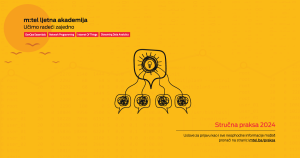SARAJEVO, April 25 (FENA) - In Bosnia and Herzegovina, real GDP growth is expected to slow down to 2.5 percent in 2023 due to a slowdown in private consumption and a further increase in the trade deficit due to expected weaker growth in the EU, according to the latest regular economic report for the Western Balkans presented today by the World Bank (WB).
Sandra Hlivnjak, a senior economist of the World Bank for BiH, said that it is expected that in the coming period, growth will continue to be driven by investments, but to a large extent by consumption, especially private consumption.
She stated that BiH has registered a decrease in unemployment, according to the data of the BiH Statistics Agency, which in the fourth quarter of 2022 was 14.3 percent, which is a decrease of about two percentage points compared to the same period of the previous year.
The highest unemployment is still among young people and people who are unemployed for a long time. When it comes to employment, there was a slight increase, while the activity rate remained unchanged.
"What is still worrying is the high rate of inflation that is present in all the countries of the Western Balkans. In 2022, from March to October, inflation in Bosnia and Herzegovina was the highest in the region, and from October the trend of reduction began. The average in 2021 was two percentage points, while in 2022 there was a significant jump, showing an average of 14 percentage points," stated Hlivnjak during the presentation of the report in Sarajevo.
As she added, it is encouraging that the trends have started to soften, so in the first two months that average was 13.3 and it is expected that this slowdown will continue. Factors that lead to the strengthening of inflation are linked to the high prices of food, housing and transportation.
Hlivnjak stated that, when it comes to the region, there is a slowdown in growth in all countries of the Western Balkans, after the strong growth that occurred after the pandemic in 2021.
"A slowdown in growth is also expected in 2023, with growth continuing to be driven in most countries mainly by investments and consumption. There is an increase in employment, but unemployment is still high, especially youth unemployment, which is around 28.5 percent in the region," Hlivnjak added.
Inflation persisted in all countries, but still around 160 thousand households managed to avoid poverty, which, as she said, is certainly good in 2022.
The good news is that the financial sector has remained stable and the World Bank's recommendation for all countries of the Western Balkans is to continue to strive to keep that sector stable.
Hlivnjak added that only two countries in the region managed to deepen the deficit in 2022, namely BiH and Montenegro, while other countries managed to reduce their fiscal deficit.
"In Bosnia and Herzegovina, the deficit deepened due to the fact that more was spent, it was an election year, and allocations were more significant for salaries, social benefits, which contributed to the deepening of the deficit to the greatest extent," explained Hlivnjak.
According to her, the World Bank's recommendation is to keep the focus on reforms and to return the dialogue towards that path.
(FENA) S. R.









